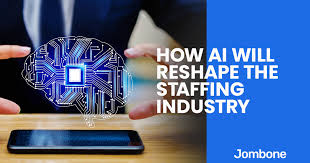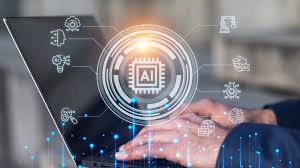02 Aug 2024, By Admin
The Future of Software Development: How AI Will Reshape the Industry
The software development landscape is on the verge of a significant transformation. Artificial
intelligence (AI) is rapidly emerging as a powerful force, poised to reshape every stage of the software
development lifecycle. This integration of AI promises not just increased efficiency but a fundamental
shift in how we approach software creation.
Let's delve into the exciting possibilities AI presents for the future of software development.
AI-powered Assistance: Supercharging Developer Productivity
One of the most immediate impacts of AI will be on developer productivity. Repetitive tasks like code
completion, code reviews, and unit testing are prime candidates for automation. AI-powered tools can
analyse vast codebases, suggest code snippets based on context, and identify potential errors. This
frees up valuable developer time for more complex problem-solving, innovation, and strategic thinking.
Imagine developers focusing less on syntax and more on crafting elegant solutions and user experiences.
Benefits of Web development
-
Enhanced Design and Development with AI
AI can play a crucial role in the design and development phases. Machine learning algorithms analyse
user data and behaviour patterns to predict user needs and preferences. This allows for the creation
of software that is not only functional but also highly intuitive and user-friendly. AI-powered design
tools can generate mockups and prototypes based on user input, accelerating the design process and
fostering better collaboration between designers and developers.
-
Revolutionising Testing with AI
Software testing is a critical but often time-consuming aspect of development. AI can revolutionise
this process by automating test case generation and execution. AI-powered tools can learn from past
test data and user behaviour to identify potential edge cases and vulnerabilities that traditional
testing methods might miss. This comprehensive and data-driven approach to testing can lead to the
development of more robust and reliable software.
-
The Rise of Generative AI: Writing Code Like Never Before
One of the most exciting frontiers in AI for software development is generative AI. This technology
has the potential to write entire code sections or even complete functionalities based on developer
specifications. While this doesn't eliminate the need for developers entirely, it can significantly
accelerate the development process, allowing developers to focus on the core logic and integration of
these AI-generated components.
-
Democratizing Development: No-Code and Low-Code Solutions
The integration of AI into development tools can also lead to the rise of powerful no-code and
low-code platforms. These platforms will allow individuals with little to no coding experience to
create basic applications using drag-and-drop interfaces and pre-built functionalities powered by AI.
This democratisation of software development can empower businesses to build custom solutions without
relying solely on professional developers.
-
Beyond Efficiency: Fostering Innovation and Creativity
While AI excels at automating tasks and improving efficiency, its impact on software development goes
beyond these benefits. Machine learning algorithms can analyse vast datasets and identify patterns and
correlations that might elude human developers. This can lead to the development of entirely new
software paradigms and solutions to previously intractable problems.
-
Challenges and Considerations: Ethical Concerns and the Human Touch
The integration of AI into software development comes with its own set of challenges. Biases in
training data can lead to discriminatory or unfair software outputs. Developers need to be aware of
these biases and take steps to mitigate them. Additionally, while AI can automate many tasks, human
oversight is still essential. The human touch will remain crucial for critical decision-making,
ensuring ethical considerations are addressed, and maintaining the overall quality and direction of
software projects.
-
AI-powered Assistance: Supercharging Developer Productivity
One of the most immediate impacts of AI will be on developer productivity. Repetitive tasks like code
completion, code reviews, and unit testing are prime candidates for automation. AI-powered tools can
analyse vast codebases, suggest code snippets based on context, and identify potential errors. Tools
like Github's Copilot and Tabnine are already offering a glimpse into this future, providing real-time
code completion and suggestions based on the developer's coding style and the surrounding code.






